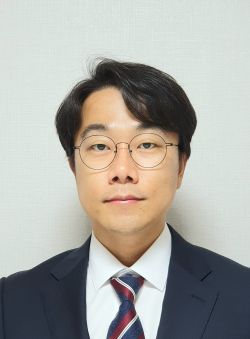| main paper |
Park, J. (2021). Development of Augmented Reality Experimental Materials to Visualize Standing Waves in a Resonance Tube. New Phys.: Sae Mulli, 71(8), 673-682.
Lee, J., Ryu, K., Park, J., Yoon, H., Park, H., & Lee, S. (2021) Implications of Scientific Practices on Science Education from the Actor-Network Theory Perspective: Focusing on the Concept of ‘Circulating Reference’. Journal of Research in Curriculum Instruction, 25(2). 133-150.
Yoon, H. G., Lee, I., & Park, J. (2020). Pre-Service Elementary Teachers’ Visual Modeling Process for Reflection of Light. The Journal of the Korean Association for Science Education, 41(1). 19-31.
Park, J. (2021). Visualization of Quantum Mechanics of College Students by Using Graph Representation Program. New Phys.: Sae Mulli, 71(2), 186-199.
Park, J., & Huh, J. (2020). Hooke’s law experiment using an electronic speckle pattern interferometry. European Journal of Physics, 41(6), 065709.
Park, J., & Park, H., (2020). Classroom characteristics that students believe enhance scientific creativity. The Journal of Learner-Centered Curriculum and Instruction, 20(18). 635-664.
Park, J. (2020). Visualization of Acoustic Standing Waves in a Closed Pipe Based on an Electronic Speckle Pattern Interferometer. Journal of the Korean Physical Society, 77(3), 229-233.
Yoon, H. G., Park, J., & Lee, I. (2020). Significance of Black Hole Visualization and Its Implication for Science Education Focusing on the Event Horizon Telescope Project. Universe, 6(5), 70.
Park, J., Jung, H., Kim, D. Y., Kim, J. Y., Seo, Y. S., Lee, S. A., and Lee, S. K. (2019) Micro-Discourses on Creativity by Elementary School Teachers. The Journal of Korean Teacher Education. 36(3), 259-288.
Lee, G. G., Park, J., Lee, S. K., Hong, H. G., Shim, H. S., & Shin, M. K. (2019). Three Dimensional Visualization of Hydrogen Atomic Orbitals Using Excel for School Science Education. Journal of the Korean Chemical Society, 63(3), 220-225.
Park, J., Shin, M. K., Shim, H. S., Lee, G. G., & Lee, S. K. (2019). Developing a Science Simulation Program to Teach the Concept of Balance in Physics: Its Development and Application for Gifted Korean Elementary Students of Science. The Journal of Social Sciences Research, 5(5), 975-984.
Lee, G. G., Park, J., Lee, S. K., Hong, H. G., Shim, H. S., & Shin, M. K. (2019). Exploring Multi-faceted Understandings and Issues Regarding Science Subject Matter Competency: Considering the Relationship with General Core Competency. Journal of Science Education, 43(1), 94-118.
Park, J., Lee, S. K., Lee, G. G., Shim, H. S., & Shin, M. K. (2019). Design and Pilot Application of an Experiment Focusing on the Nature of Scientific Inquiry: Focus on the Epistemological Issues in the Process of Dry Ice Sublimation Experiment. The Journal of The Korean Association For Science Education, 39(2), 173-186.
Park, J., & Yoo, J. (2018). Information Flow During Individual Model Construction and Group Model Construction Type in the Sound Propagation Model Co-Construction Class, The Journal of the Korean Association for Science Education, 38(3). 393-405.
Park, J., Lee, S., Shim, H, Lee, G., & Shin, M. (2018). Analyzing the Characteristics of Pre-service Elementary School Teachers’ Modeling and Epistemic Criteria with the Blackbox Simulation Program. The Journal of the Korean Association for Science Education, 38(3). 305-317.
Park, J., Park, E., & Lee, S. (2018). Perception of Pre-service Elementary School Teachers on Creativity and Scientific Creativity Education. The Journal of Learner-Centered Curriculum and Instruction, 18(12). 241-267.
Kim, M., Kim, D., & Park, J. (2018). Meta-analysis of educational effects in invention education programs. School Science Journal, 12(1). 139-150.
Park, J. (2017). Development and Application of Scientific Model Co-construction Program about Image Formation by Convex Lens. Korean Journal of Optics and Photonics, 28(5). 203-212.
Park, J., & Yoo, J. (2016). Development of Low-Cost ESPI for a School Environment. New Phys.: Sae Mulli. 66. 1420-1425.
Do, H., Park, J., & Yoo, J. (2016). An Analysis of Teacher's Scaffolding for Promoting Social Construction of Scientific Models in Middle School Science Classes. The Journal of the Korean Association for Science Education, 36(4). 643-655.
Yoo, J., Park, J., Bae, D., Kim, H., Sung, K., Noh, J., & Koh, H. (2011). Estimation of Nominal Frequency of Whangjongeum by Acoustical Analysis of Old Pyeongyeongs. The Journal of the Acoustical Society of Korea. 30(8). 421-427.
Park, J., & Yoo, J. (2011). High School Students' Interpretations and Understandings of Physics Textbooks' Illustrations of Standing Waves in a Pipe. Sae Mulli, 61(9). 862-875.
Park, J., & Yoo, J. (2010). An Analysis of Physics Textbooks’ and of Teachers’ Representations of Sound Waves in Pipes from the Views of Concrete vs. Abstract and Microscopic vs. Macroscopic. Sae Mulli, 60(9). 960-975.
Park, J., & Yoo, J. (2009). Middle-school High-achievers' Understandings of Air-particles' Vibrational Motions and Longitudinal Waves in a Pipe. Sae Mulli, 59(4). 320-328. |













 예비대학생
예비대학생 재학생
재학생 졸업생
졸업생 일반인
일반인 교직원
교직원